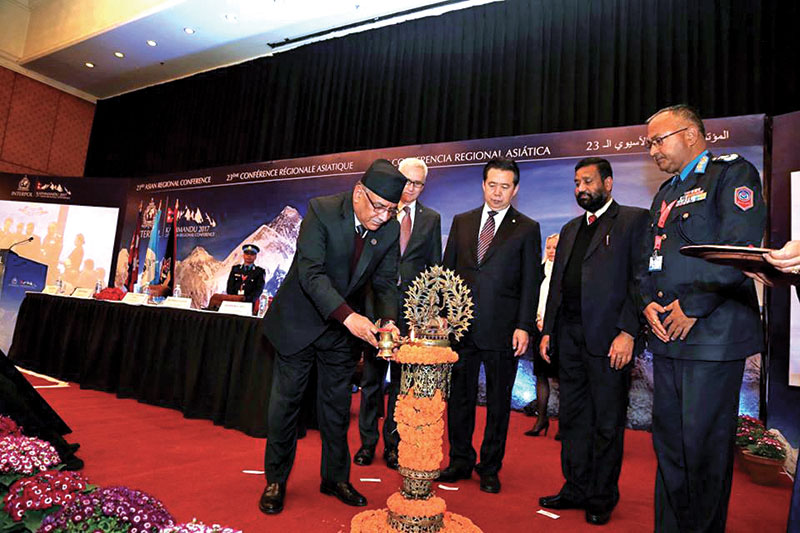INTERPOL meet stresses regional cooperation to combat crime
Kathmandu, January 18
INTERPOL’s 23rd Asian Regional Conference opened here today, bringing together senior law enforcement officers to unite regional efforts in providing a more effective global response to terrorism and organised crime.
With Islamic State being driven out of conflict zones, a key topic is the threat posed by an estimated 15,000 foreign fighters still thought to be engaged in conflicts, any of whom may travel to Asia to engage in radicalisation or covert cell operations, warned the INTERPOL.
Delegates at the three-day meet will discuss areas where increased cooperation and shared best practices can help identify and interdict suspected terrorists ahead of any planned attack. In his opening address, Prime Minister Pushpa Kamal Dahal said the conference would be an important milestone in uniting and strengthening law enforcement networks across Asia-Pacific.
“New threats and challenges put a special demand on every country to strengthen national and collective security. Today, no single country can rely solely on its capabilities to address the problem of transnational and organised crimes,” he said.
Deputy Prime Minister and Minister for Home Affairs Bimalendra Nidhi stressed on redefining and strengthening solidarity between law enforcement agencies and various other governmental and non-governmental stakeholders, who have supporting roles in security arrangement as ‘the deep impact of crime and terrorism was beyond our imagination’.
“Criminal gangs and terrorist syndicates are united and organised. So to curb them, conferences such as this will help develop better cooperation and understanding among law enforcement agencies,” he said.
Emphasising the need for increased solidarity, innovation and collaboration, INTERPOL President Meng Hongwei said Asia must come together and use INTERPOL to succeed against transnational crime and terrorism.
“Asia today faces one of the severest security situations in the world with incessant regional turbulence and conflicts impacting peace and stability,” said Meng. “Asia and INTERPOL will play unprecedented roles in the building of a new architecture of global law enforcement and security cooperation. This is a strategic opportunity and a major responsibility,” added Meng. He also highlighted the fact that Asia accounts for some 67 per cent of the world’s population, providing significant potential in forging links for a global response to transnational crime.
IGP of Nepal Police Upendra Kant Aryal said the meeting was a reflection of consolidated effort in the fight against the menace of terrorism and other transnational crimes. “We need to acknowledge that police priorities now extend beyond geo-political barriers,” said Aryal. “INTERPOL has been an effective platform to facilitate police agencies in preventing and fighting crimes through enhanced cooperation.”






